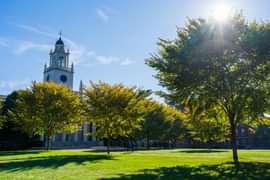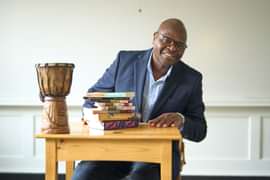
October 30, 2019
Religious Illiteracy in Secondary School Education
Finding solutions through art, history, and literatureby Kurt Prescott, Instructor and Chair, Philosophy and Religious Studies
It’s no surprise that I spend a good deal of time thinking about religious literacy. As an instructor in the philosophy and religious studies department at Phillips Academy, I have the distinct privilege of immersing myself in the discipline by teaching electives that directly confront questions about what it means to engage responsibly with a world in which some 6.4 billion people identify with a particular religious tradition. Within the larger context of secondary school education, however, stand-alone electives on religious studies—let alone entire departments—are the exception, not the norm.
Solutions to religious illiteracy then are not likely to be found in religious studies departments, but in mainstream disciplines, such as art, history, and English. This sort of interdisciplinary endeavor has become an increasingly central focus of my work as a Tang Fellow over the course of the past two years, both in my capacity as an education fellow at the Religious Literacy Project and as a classroom teacher.
This spring, I will pilot a revamped version of my elective Religion, Literature, and the Arts to focus exclusively on the works of Margaret Atwood, whose novels The Handmaid’s Tale, The Year of the Flood, and recent Booker Prize winner The Testaments offer a rich engagement with religious identity and gender through the medium of literature. I am also exploring the prospect of running this course alongside the English elective An Introductory Survey of African American Literature, in which Bridget Tsemo, Andover instructor in English, intends to teach the works of Toni Morrison through a similar lens. By exploring how two different female authors engage questions about religious identity, we hope to develop an interdisciplinary resource for English teachers that would allow them to effectively explore the issues of religious literacy in their own classrooms.
Other Stories

New Charter and Alumni Trustees begin terms July 1

Saluting two retiring faculty with a combined total of 46 years of service to Andover



